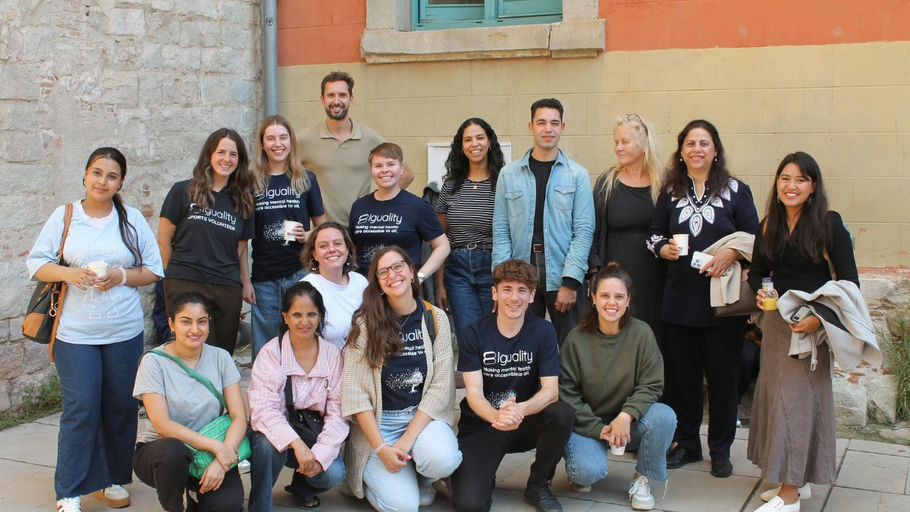
8 januari 2026

In heel Europa wordt de verzorgingsstaat langzaam uitgehold. Politieke debatten richten zich op militaire budgetten, migratie en bezuinigingen op overheidsuitgaven, terwijl de dagelijkse realiteit van het leven – huisvestingsonzekerheid, burn-outs, eenzaamheid en psychische problemen – aan de zijlijn blijft staan. Maar nu meer dan ooit moeten we een verzorgingsstaat heroveren en verdedigen die voldoet aan de werkelijke behoeften van onze samenlevingen. En dat betekent dat we geestelijke gezondheid centraal moeten stellen.
De verzorgingsstaat is geen relikwie uit het verleden. Het is een van Europa's krachtigste verworvenheden. Maar om relevant en rechtvaardig te blijven, moet deze evolueren – en dat betekent dat we moeten erkennen dat geestelijke gezondheid net zo essentieel is als fysieke gezondheid, onderwijs of inkomenszekerheid.
Traditioneel richtte de verzorgingsstaat zich op pijlers zoals gezondheidszorg, onderwijs, pensioenen en werkgelegenheid. Maar in de 21e eeuw weten we dat welzijn niet beperkt blijft tot economische indicatoren of ziekenhuisbedden. Psychische aandoeningen – van angst en depressie tot trauma en burn-out – behoren nu tot de belangrijkste oorzaken van arbeidsongeschiktheid en uitsluiting in heel Europa (Wereldgezondheidsorganisatie, 2022).
Zonder toegang tot geestelijke gezondheidszorg hebben mensen moeite om op school te blijven, werk te behouden, voor anderen te zorgen of deel te nemen aan de maatschappij. Geestelijke gezondheid is geen "persoonlijke kwestie" – het is een collectieve zorg, gevormd door armoede, discriminatie, huisvestingsonzekerheid, migratiestatus en sociaal isolement (OESO, 2019).
Een verzorgingsstaat die geen universele, toegankelijke en cultureel competente geestelijke gezondheidszorg biedt, is onvolledig en uiteindelijk onhoudbaar (Europees Actieplan voor de Geestelijke Gezondheid, 2020).

1. Preventie is slimmer dan crisismanagement
Wanneer mensen al vroeg toegang hebben tot geestelijke gezondheidszorg – of dat nu via openbare diensten, buurthuizen of scholen is – bespaart de samenleving later enorme kosten: ziekenhuisopnames, langdurige werkloosheid, dakloosheid en gevangenisstraf (Lancet Commission on Global Mental Health, 2018). Preventie is niet alleen humaner, maar ook efficiënter.
2. Geestelijke gezondheid en ongelijkheid zijn nauw met elkaar verbonden
Ongelijkheid wakkert psychische problemen aan – en onbehandelde psychische problemen versterken ongelijkheid. Een goed functionerende verzorgingsstaat biedt niet alleen therapie. Ze pakt ook de structurele oorzaken van psychische nood aan: armoede, racisme, gendergeweld, huisvestingsinstabiliteit en uitsluiting (Europees Netwerk voor Sociaal Beleid, 2021). Door te investeren in geestelijke gezondheid, investeren we in sociale cohesie, gelijkheid en democratische participatie (OESO, 2020).
3. Mentale gezondheid is essentieel voor veerkracht
Sterke verzorgingsstaten helpen mensen herstellen van tegenslagen – baanverlies, migratie, ziekte of persoonlijk trauma. Maar dat werkt alleen als we mentale gezondheid als prioriteit beschouwen. Het waarborgen van emotioneel welzijn stelt mensen in staat zich aan te passen, zich te verbinden en volledig te participeren in hun gemeenschappen en economieën (European Observatory on Health Systems, 2021).

Dit is geen oproep tot nostalgie. Het is een oproep om de verzorgingsstaat opnieuw vorm te geven, zodat deze aansluit bij de realiteit van vandaag en de behoeften van morgen. We moeten:
Een samenleving die geestelijke gezondheid negeert, is een samenleving die fragmenteert. Een verzorgingsstaat die geestelijke gezondheid omarmt, wordt een ruimte van herstel, verbinding en mogelijkheden.
Een sterke verzorgingsstaat bestrijdt niet alleen symptomen. Het vraagt zich af wat voor leven voor ons allemaal mogelijk is – en welke rol publieke instellingen zouden moeten spelen om dat leven veiliger, rechtvaardiger en leefbaarder te maken.
Geestelijke gezondheid is geen aparte agenda. Het is de rode draad die door elk aspect van een gezonde samenleving loopt. Als we een verzorgingsstaat willen die werkt, hebben we er een nodig die zorgzaam is – diepgaand, structureel en zonder uitzondering.
Want echt welzijn is nooit individueel. Het is collectief – en het is de moeite waard om te beschermen.



Blijf op de hoogte van ons werk, onze bewustmakings- en belangenbehartigingsinspanningen, onze nieuwste publicaties en natuurlijk al onze (sport)evenementen door ons te volgen op sociale media of door u te abonneren op onze nieuwsbrief.
Blijf op de hoogte van ons werk, onze bewustmakings- en belangenbehartigingsinspanningen, onze nieuwste publicaties en natuurlijk al onze (sport)evenementen door ons te volgen op sociale media of door u te abonneren op onze nieuwsbrief.

8 januari 2026

25 november 2025

13 november 2025

18 oktober 2025

6 oktober 2025

19 september 2025